How Tariffs, AI, and Robots Will Reshape Industry and Humanity
Tariffs are breaking old trade ties. AI and robots are rewriting the rules. The U.S.–China split is just the beginning of a new world map drawn in algorithms, not alliances.
Current American establishment's quest for control and "teaching countries lessons" is pushing the geostrategic chessboard in a certain direction. The resultant Indo-China rapprochement may be a watershed moment in this century. A detailed analysis.

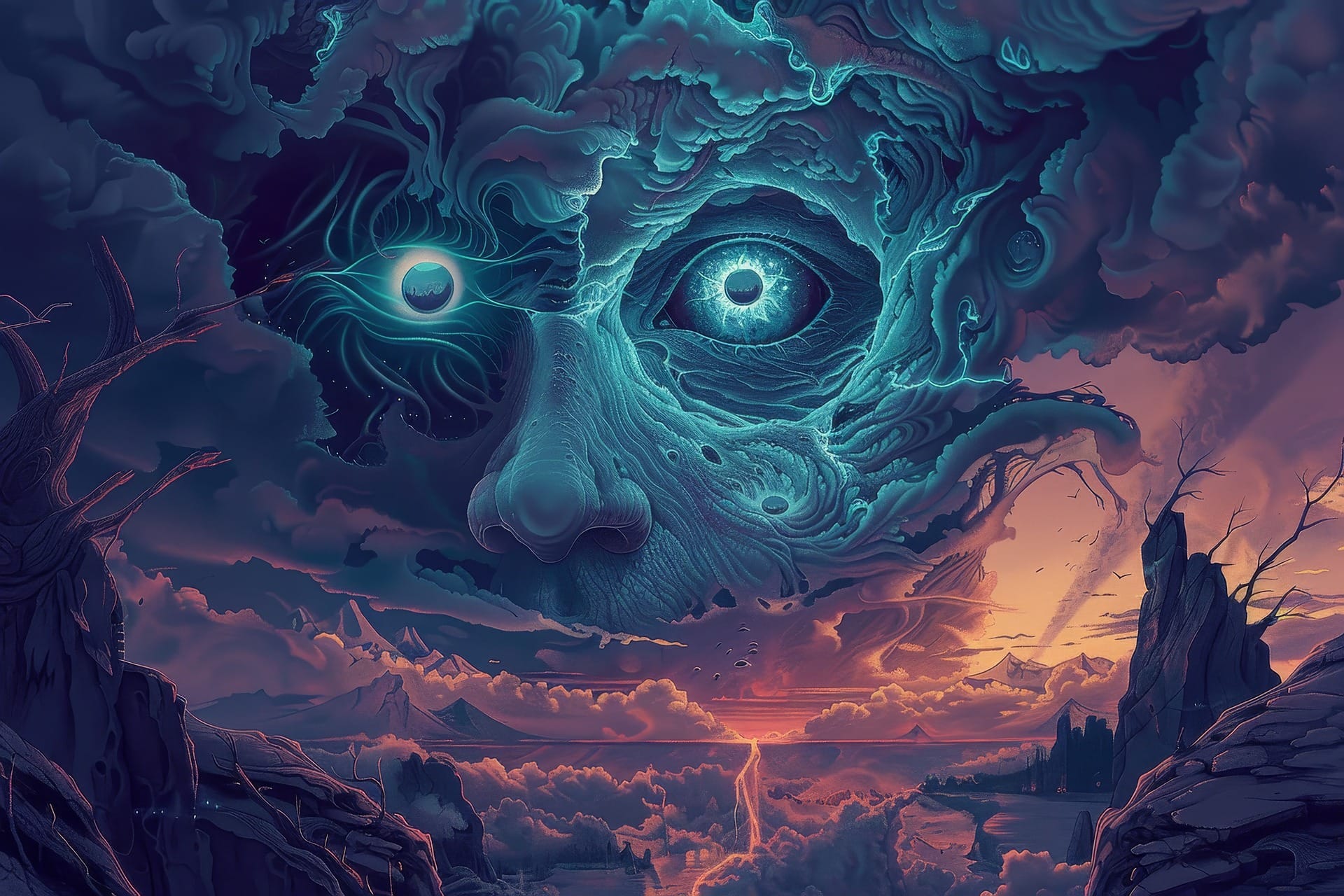
We are at the cusp of modern history.
A turning point is staring in our faces.
From a unipolar or bipolar world (British to US to US/USSR to US again), we are witnessing the rise of a multipolar world. For many, the "Wild West".
Ambitions, power, greed vs freedom, and fetish for control underscore the moves of different players.
Sometimes such turning points have unintended consequences and ramifications that go beyond our calculations and imaginations.
The Tang Dynasty of China was one of the most powerful and culturally advanced empires of its time. It had steadily expanded westward, gaining control over the Silk Road and asserting dominance over much of Central Asia. However, in 751 CE, Chinese forces clashed with the Abbasid Caliphate near the Talas River (in modern-day Kazakhstan).
The Battle of Talas ended in a decisive defeat for the Tang forces, halting Chinese westward expansion. This battle had significant repercussions: it limited Chinese influence in Central Asia and strengthened the Abbasid Caliphate’s control over the Silk Road. Perhaps most interestingly, it is believed that Chinese prisoners taken by the Abbasids shared the technology of papermaking, which then spread throughout the Islamic world and eventually to Europe. This technological transfer revolutionized record-keeping, scholarship, and administration, paving the way for the scientific and intellectual developments of the Middle Ages.
Whatever moves the countries make today should have careful consideration for the global future.
What we do takes a lot of work. So, if you like our content and value the work that we are doing, please do consider contributing to our expenses. Choose the USD equivalent amount in your own currency you are comfortable with.
Since late September this year, an interesting scenario has unfolded. Barack Obama, Hillary Clinton, and Michelle Obama have been campaigning as well as holding fund-raisers unprecedentedly. [Check the information from NBC / ABC / CNN (Michelle) / CNN (Georgia)]
Barack Obama:
Hillary Clinton:
Michelle Obama:
Do you remember such firepower from the Obamas and the Clintons during the 2020 Joe Biden campaign?
You see, as opposed to the 2020 campaign, the 2024 campaign appears to be leveraging the combined star power of Obama and Clinton more explicitly, clearly evidenced by the record-breaking fundraisers.
WHY?
Or is there something that we are missing?
For, if you look closely, it is a move out of desperation from the Obamas and the Clintons.
Already a major voter fraud has been unearthed in Pennsylvania. Not sure which party was involved, but given the past record, it is not tough to figure out who was involved.
BREAKING.🚨🚨
— Kyle Becker (@kylenabecker) October 25, 2024
Major Voter Registration Fraud Operation Uncovered in Pennsylvania
Lancaster County’s District Attorney Heather Adams and three county commissioners have announced a major voter registration fraud operation in Pennsylvania.
"On Tuesday afternoon, I was contacted… pic.twitter.com/vgxNhFZ5wo
Meanwhile, per some reports residents in Washington DC are already fleeing their town. Fear of violence from either/both sides?

Let us ask the all-important question:
If you look at the statistics from the past elections involving Trump, you will see that there indeed may be a landslide for him.
Given the renewed star power showing up for the DNC candidate, that would make sense.
With that as the background context, let us look at the larger global situation.
The biggest concern that the Western countries have currently is - Sino-Russian alliance.
Of course, the "Western Strategic Minds" come up with convenient explanations that seem rather naive hoping for a more conducive outcome for the US.
The growing strength of Chinese-Russian alignment—and how to counter it—is one of the major issues occupying Western strategic minds. It is commonly acknowledged that Beijing and Moscow have drawn closer together since the start of Russia’s war in Ukraine in 2022, with China’s economic and technological support of crucial importance to Russia’s war efforts. But there is still much debate over how strong the Sino-Russian relationship really is and what drives it. Mutual mistrust based on the two powers’ difficult history still runs deep, and it is uncertain how comfortable Moscow is with its growing dependency on China. Beijing, in turn, has been put in an awkward position vis-à-vis one of its largest trading partners, the European Union, by Russia’s war. Some Western strategists seem to hope that Sino-Russian disaffection could lead to a split reminiscent of the famous Sino-Soviet fracture in the 1960s and early 1970s. (Source: The Beijing-Moscow Axis Is Much Stronger This Time Around / Foreign Policy)
Earlier this month, Politico posited Sino-Russian cooperation in the Arctic as the greatest threat. A Nuclear flashpoint.

Since July 2022, we have been calling the Arctic to be the main motivation behind the Ukraine war by the US and Europe.
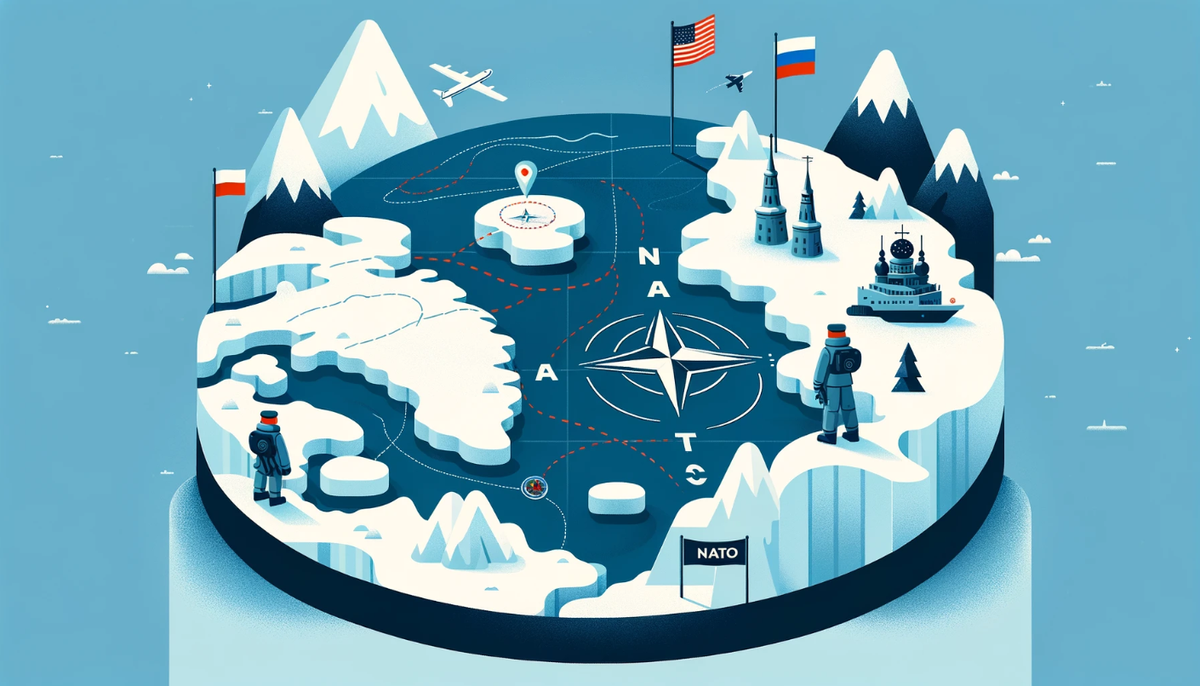
If you were indeed a strategic mind, what would you do in terms of geopolitical moves from the American side?
As America seeks to counter a rising China, no nation is more important than India, with its vast size, abundance of highly skilled technical professionals, and strong political and cultural ties with the United States. But the parallels between America’s dependency on China for manufacturing and its dependency on India for IT services are striking. (Source: India Is an Essential Counterweight to China—and the Next Great U.S. Dependency)
Well if that was so, then the current establishment is spectacularly screwing up its relationship with India.
Wait, let us say what is obvious to most in India by now.
Reason - he doesn't take dictation from the US. Which to the US establishment translates as "authoritarian."
You see, once you do the bidding then you get all the democratic haloes constructed for you.
Canada, specifically its current administration of Justin Trudeau has decided to jettison its ties with India to win its domestic election. It wants to continue to target India via terror activities carried out by non-state actors that have allies within its current government.
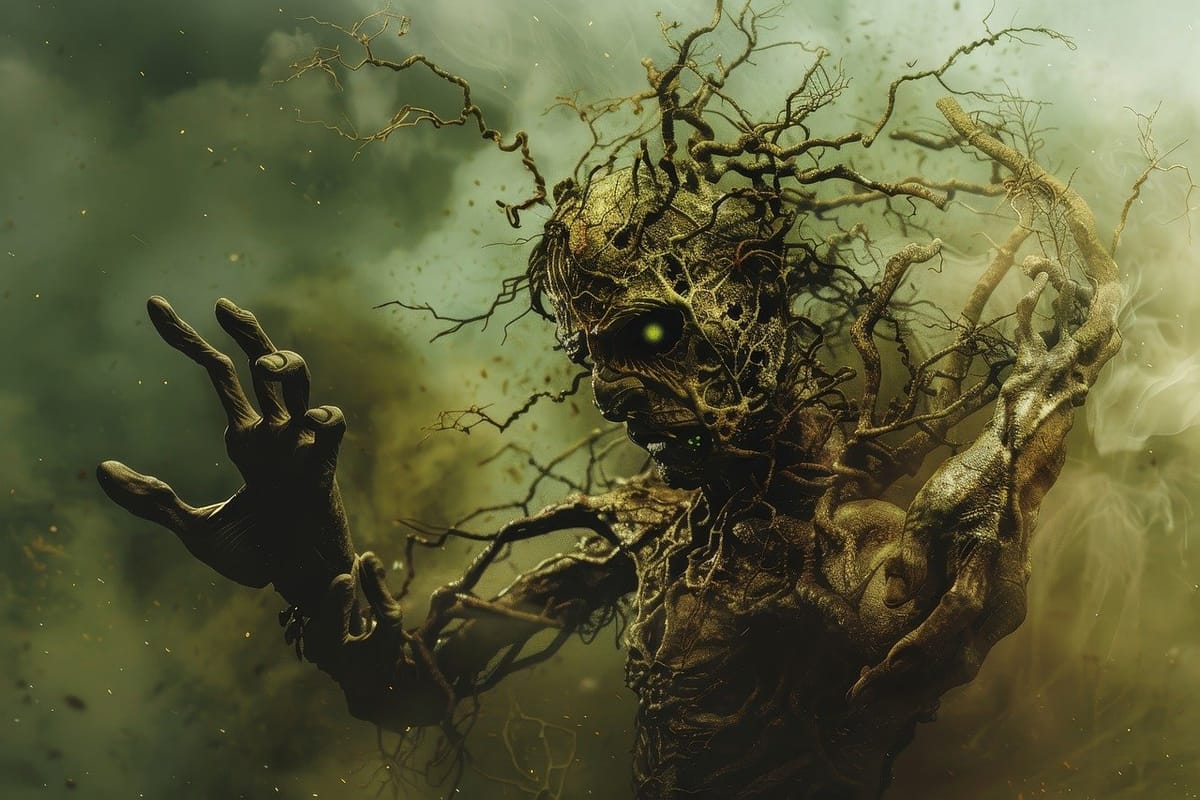
You would think US would act more responsibly.
It didn't.

So now, the current American administration, feeling slighted by Modi's continued engagement with Russia (which India terms as a reliable partner through its independent history - a fact based on multiple crises) - has ostensibly decided to "teach India a lesson."
With things between Canada, the US and the UK getting worse by the day, India's current government initiated some important moves.
We had discussed some here.
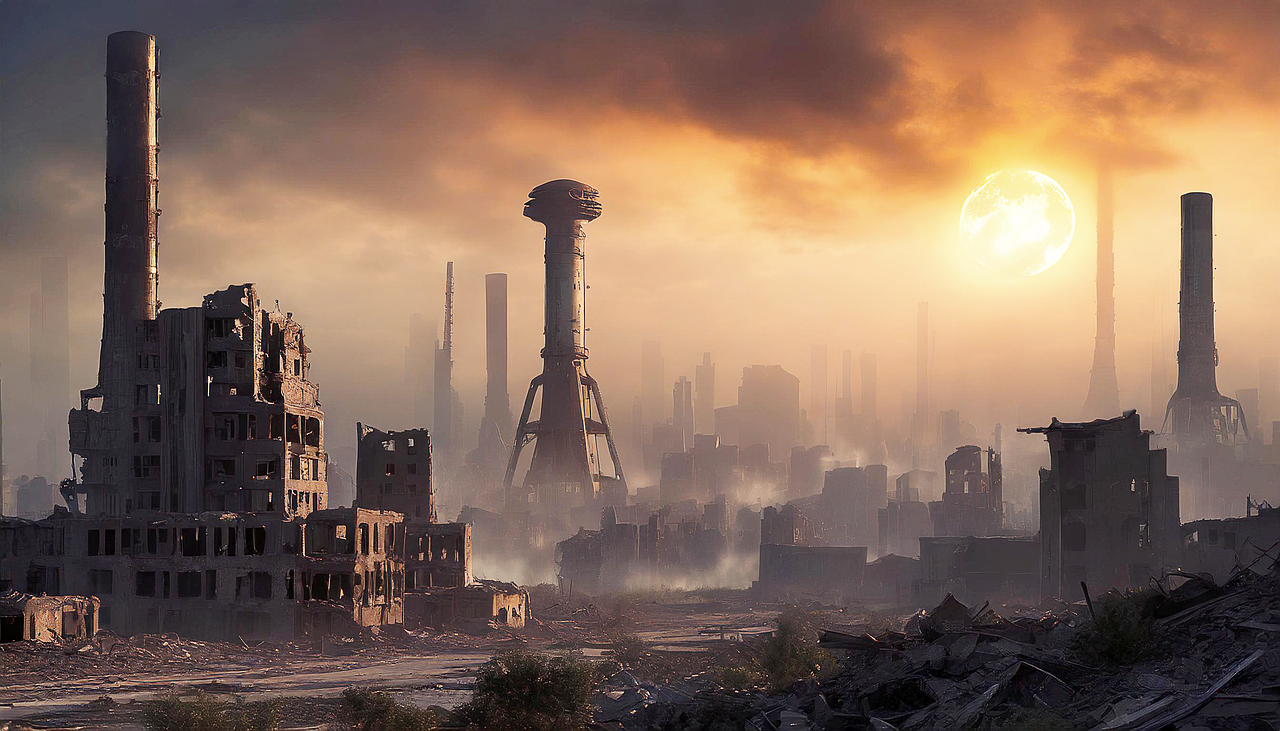
But now comes the move that should be sending geopolitical shockwaves throughout the Western Capitals.
Most importantly because of what it means for the power that BRICS nations can exhibit.

The Indo-China detente.
The recent India-China border agreement, signaling a reduction in military tensions, appears to have strategic undertones potentially supported by Russia. As Russia maintains close ties with both nations, it may have influenced their move toward cooperation, especially with a shared interest in reducing Western influence in Asia. By easing tensions at the border, India and China could shift focus to multilateral alignments, such as BRICS, where Russia also plays a key role.
This development underscores a broader regional shift toward independent conflict management and a multipolar world framework.
Therefore the shockwaves.
You see, in order to target Modi and create a "compliant India", the current Biden administration has completely undermined the West.
CBC captures the moves by the US and Canada to "corner" India via the rather ridiculous and unsubstantiated allegations of Indian government officials involved in the killings of Sikh terrorists who openly call for targeted violence against Indian leaders in India and consulate members in the US and Canada (a Geneva convention violation).

Let us be very clear about the crux of the issue.
Not that India has targeted these terrorists, but if they had - as Israel, China, Russia, and the US regularly do to those who target their country's sovereignty, then one would be puzzled by the stances taken by the US and Canada.
Unless - attacking India's sovereignty is the state policy of these two countries in the garb of "free speech and citizens' rights".
"We" however will call your right to defend the integrity of your sovereignty as an attack on ours!
India External Affairs Minister Dr. Jaishankar lays out the contrast and the reasoning for India's relations with Russia despite the US threats very clearly.
So what do we learn?
Remember, what we are discussing here is the coming together of Russia (still a military and nuclear major power), China (a strong though faltering economic power), and India (the fastest-growing major economy and a military power). All this with the backdrop of these three countries leading the BRICS formation that in these times clearly overshadows the G-7 formulation by a wide margin.
And, this isn't the first administration that would have such ideas of "teaching India a lesson for thinking on its own". Richard Nixon (and his Secretary of State Henry Kissinger) also has similar thoughts. Incidentally, they were the architects of the Khalistani terror movement along with the Pakistan general at that time - Yahya Khan.
Please read about that here.

There is no other explanation for the behavior of the Biden establishment and the repercussions that we have seen in India.
Now with India's rapprochement with China, all the moves that the US was making have fallen by the wayside.
With that background, let us discuss India's watershed agreement with China in the backdrop of China's own history and internal politics which shows us why such a move from their side could become a possibility.
On October 23rd, a major agreement took place between India and China. Disengagement - rather a complete disengagement at the border.

It is interesting to note that it will also lead to Special Representatives’ talks on the India-China boundary issue. Who are these Special Representatives?
India's NSA Ajit Doval and China’s Foreign Minister Wang Yi.

So this agreement comes exactly a month after Doval and Wang Yi met on the sidelines of the BRICS National Security Advisers' meeting held in St. Petersburg on September 13th.
We had recently laid out the entire timeline of diplomatic maneuvering going on a that time.

This represents a significant diplomatic victory for India's firm stance on territorial integrity. India’s approach—balancing military readiness with persistent diplomatic pressure—has been instrumental in urging China to withdraw and re-evaluate its strategies. The disengagement signals acknowledgment from Beijing of India’s non-negotiable stance on sovereignty, and while challenges persist, this development reaffirms India’s commitment to safeguarding its borders and maintaining regional stability through strength and negotiation.
Everyone is very skeptical in India regarding China's intentions. Even the South China Morning Post acknowledged it!
Saheli Chattaraj, assistant professor of Chinese studies at Somaiya Vidyavihar University, said India remained cautiously optimistic about Beijing’s intentions but that stability at the border served both nations’ interests. “Our differences at the border still continue, with China’s stand being that differences left from history need to be resolved through mutual consultation,” Chattaraj said. (Source: ‘Good restart’: India-China thaw driven by economic, security interests, experts say / SCMP)
So why did it happen?
We have to understand what is really going on in China. For that, we need to have a better appreciation of its history and the intrigues that go on.
China and its Communist Party (CCP) are not for the faint-hearted.
Let us fist watch this video from 2023 and then discuss the situation further.
Broadly, this is what he says.
Btw remember these two names - Wang Qishan and Meng Jianzhu. We will discuss them soon.
Do you know who the guy in the video is?
He is Miles Guo.
Also known as Guo Wengui, Ho Wan Kwok. A billionaire. An enigma. Once entrenched in the top ranks of China's wealthiest. His holdings stretched across empires—Beijing Zenith, sprawling real estate, and global ventures. He was powerful. Untouchable. Until he wasn’t.
The tides turned swiftly. Relentlessly. Xi Jinping took the helm and, with him, a new era of crackdowns. Guo wasn’t just any billionaire; he was tied to China’s complex elite, a nexus of influence and whispered secrets. But Xi’s vision had no room for private power brokers. No tolerance for independent players in a controlled landscape.
Guo fled. Exiled himself. And the wrath followed him. Assets frozen. Allies hunted. His empire, once a testament to his clout, dismantled piece by piece under the weight of Xi’s relentless anti-corruption machine. Now, from afar, Guo wages a different battle. No longer in the boardroom, but in the crosshairs of political dissent. Xi reshaped China. And Guo, once a titan, became a renegade.
Later he was aligned with Donald Trump's MAGA and Steve Banon.
Interestingly earlier this year in June 2024, he was convicted by a jury of multiple felonies in a fraud trial.

In 2017, he started his YouTube presence to reveal deep corruption and political intrigues within the Chinese Communist Party (CCP). Very soon he was being targeted by the Chinese officials and agents who worked to silence him.
The video was recorded in 2023, probably before his arrest.
Well, another billionaire met with the same fate.
Jack Ma. The face of China’s entrepreneurial dream. Visionary. Billionaire. Founder of Alibaba. A symbol of private success in a state-driven system. But then—he dared to speak out. Criticized China’s financial regulators. Challenged the system.
And Xi Jinping was watching.
Even worse for Jack Ma was that he was aligned with the Shanghai gang.
When Jack Ma founded Alibaba in 1999, President Jiang Zemin and his "Shanghai Gang" were at the apex of their influence. After a difficult period in the post Tiananmen years they had consolidated power and through proxies maintained significant influence when the leadership officially changed in November 2002. And so as Alibaba prospered it naturally came into the orbit of the Jiang faction and to some degree the company appears to have embraced these new friends. (Source: Australian Financial Review)
In a swift and calculated response, Ma disappeared from public view. The move was cold. Precise. Under Xi, there was no room for dissent, no tolerance for corporate titans who thought they could reshape China’s narrative. Ma’s Ant Group IPO—once set to be the largest in history—was halted. Entirely. Regulators descended, dismantling the empire he’d meticulously built. Fines. New regulations. Public apologies.
The message was clear: the Party comes first.
Always.
In the shadows, Hu Jintao, the former president and symbol of a more open economic era, could only watch. Xi was dismantling not just Jack Ma but an entire legacy, one that had allowed figures like Ma to rise.
Jack Ma became the cautionary tale. Success is welcome—obedience, mandatory.
Alignment with the Shanghai gang was not a great way to prosper.
The power play within China’s elite circles has turned sharp. A calculated evolution now defines the relationship between President Xi Jinping and his once-trusted allies, Wang Qishan and Meng Jianzhu.
Wang Qishan. Xi’s hammer in the anti-corruption drive. The former vice president’s role was vital, laying the groundwork for Xi’s iron grip.
But now?
Distance. Tension.
Wang’s deep network within the Party, once an asset, now casts shadows of potential defiance. Xi sees it. And he moves—swiftly, surgically.
The anti-corruption purges hit Wang’s circle.

So, a clear message: influence has limits.
Then, there’s Meng Jianzhu—the former head of the powerful Political and Legal Affairs Commission. Meng’s control of law enforcement and intelligence was immense. He implemented Xi’s reforms, executing them with precision.
But Xi’s gaze has shifted.
Meng’s hold on the security apparatus? Dismantled.
His allies? Under scrutiny.
Meng Jianzhu, who was in charge of the zhengfa (political and legal affairs) system, was also targeted by Xi's purges.

Xi is seizing the reins directly, eliminating any remnants of Meng’s power.
Each move is deliberate. The message is unmistakable. Xi demands loyalty. Absolute. Unquestioned.
And he’ll dismantle his own foundation if it wavers, brick by brick.
For decades, Chinese politics has been shaped by two dominant factions within the Chinese Communist Party (CCP): the Shanghai Gang and the Communist Youth League (CCYL). These factions, representing the “Elitists” and the “Populists,” are historically rooted in distinct ideologies, regional power bases, and leadership styles shaping Chinese governance's balance.
The Shanghai Gang—also known as the “Blue Team”—emerged as a powerful faction under Jiang Zemin’s leadership. Known for their pro-business orientation and ties to coastal cities, the Elitists in the Shanghai Gang emphasized economic growth, international trade, and pragmatic policies that prioritized China’s wealthy urban areas. Their influence was deeply embedded in business circles, technology sectors, and regional development in economic powerhouses like Shanghai. The Blue Team’s strength lay in its ability to merge Party goals with economic reforms that transformed China into a global economic player.
On the other side was the Communist Youth League, or the “Red Team,” led by Hu Jintao, which became the stronghold of the Populists. Known as the Chinese Communist Youth League (CCYL), this faction focused on more equitable development, advocating policies aimed at China’s rural population and interior provinces. This faction represents those who rose through the Party ranks via the CCYL rather than through the Shanghai business circles. The Red Team, therefore, emphasizes policies that address social disparities, poverty alleviation, and the needs of China’s underdeveloped regions, positioning itself as a counterbalance to the Elitist faction.
Let us go back a bit to have a better appreciation of who Xi Jinping is.
In October 2007, at the 17th Communist Party Congress, something unprecedented had happened. Hu Jintao, who was brought in after Jiang Zemin allowed two potential successors to be elevated.
Xi Jinping and Li Keqiang.
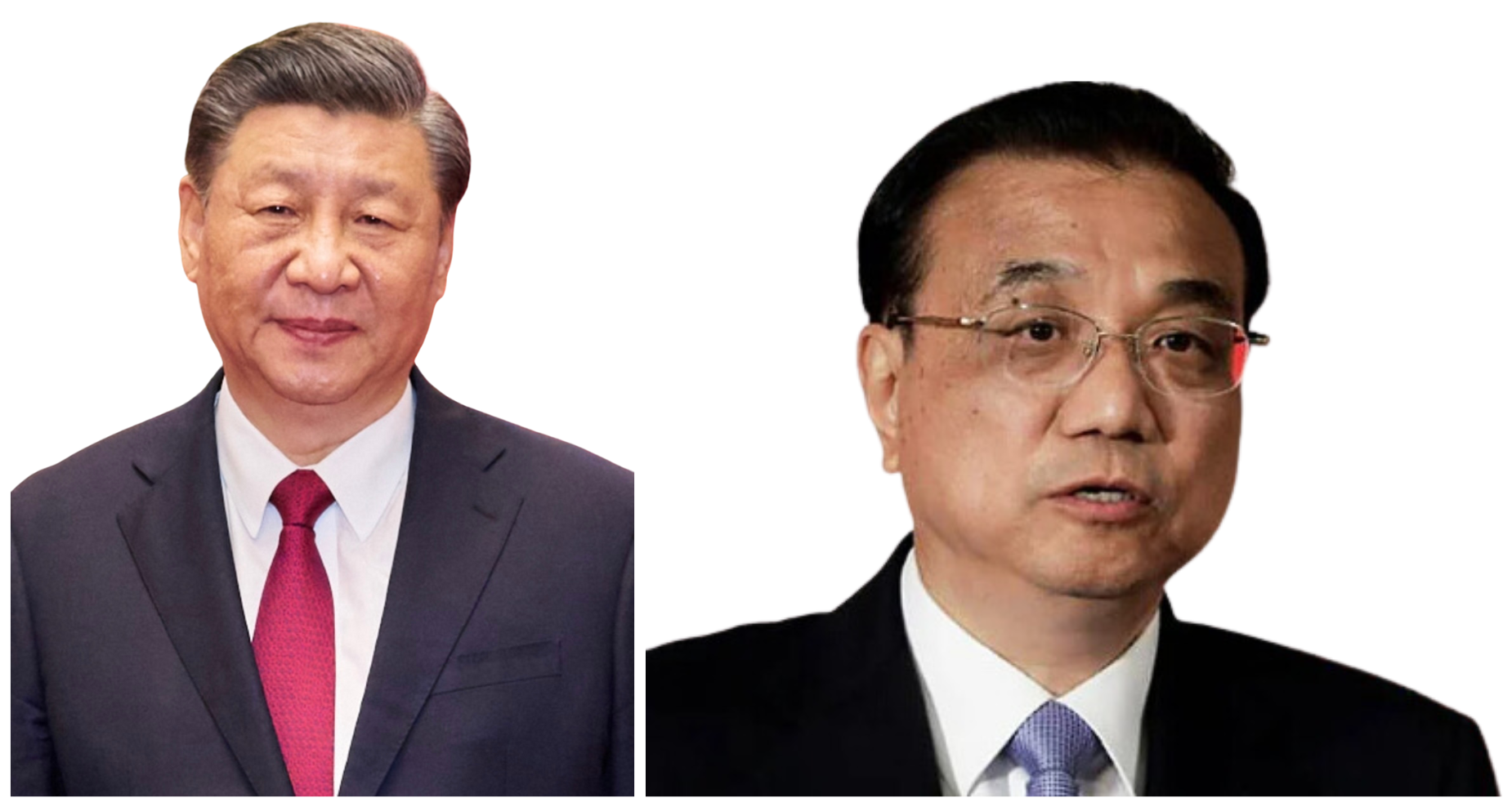

As it turned out - Xi Jinping emerged the winner.
Although Li Keqiang’s departure from office coincided with his retirement, his exit was widely seen as part of Xi Jinping’s broader strategy to remove or sideline high-profile leaders associated with the Communist Youth League faction.

After his departure, Li Keqiang stayed out of the public eye, typical for retired Chinese officials. On October 27, 2023, news broke of his sudden and unexpected death in Shanghai due to a heart attack.

With Li, the era of skilled technocrats and economists at the top gave way to a Xi era of the loyalists.
Xi Jinping took over as the head of the Chinese Communist Party (CCP) in November 2012 and became President of China in March 2013. His rise was strategic, calculated, and marked by significant moves to consolidate power quickly and efficiently.
Xi’s ascent to the top was not just a natural progression within the Party; it was the result of a well-crafted series of maneuvers that allowed him to eliminate rivals and secure an unprecedented hold on power.
Xi Jinping’s political rise began long before he reached the top ranks of the CCP. Born into a family with a significant political legacy—his father, Xi Zhongxun, was a respected revolutionary leader—Xi had access to China’s political elite from a young age. However, during the Cultural Revolution, his family suffered greatly, which may have instilled in him a cautious, pragmatic approach to power.
In 2007, Xi’s political career took a decisive turn when he was appointed to the Politburo Standing Committee, the CCP’s top decision-making body, bypassing several senior officials who were thought to be in line for the role.

This was a critical moment in his path to power, as it positioned him to succeed Hu Jintao as the CCP General Secretary.
In November 2012, at the CCP’s 18th National Congress, Xi was officially appointed General Secretary of the CCP. His selection was not without controversy.
The key intrigue here was Xi’s reputation as a cautious, middle-of-the-road candidate, which helped him gain support from those wary of radical changes. Many in the Party believed that Xi would govern as a "first among equals," in line with the collective leadership model established by Deng Xiaoping to prevent power from being too concentrated in one individual’s hands.
Once in power, however, Xi quickly began consolidating control in ways that far exceeded his predecessors. The key tool in this effort was his anti-corruption campaign, launched shortly after he became Party leader. Publicly, this campaign aimed to root out corruption within the CCP, but it also became a mechanism for removing rivals and neutralizing factions within the Party. The campaign targeted hundreds of high-ranking officials, many of whom were associated with the Shanghai Gang or the Communist Youth League. Notable figures caught in this purge included Zhou Yongkang, a former security chief, and Bo Xilai, a rising star in the CCP.
This anti-corruption drive expanded Xi's influence across the government, military, and security apparatus. It allowed him to position allies in key roles, particularly within the Politburo Standing Committee, the Central Military Commission, and China’s intelligence services. Analysts have noted that this campaign fundamentally reshaped China’s political landscape by creating a culture of fear and loyalty, with officials more focused on proving their allegiance to Xi than on competing for power.
Xi was appointed President of China in March 2013, a largely ceremonial role compared to his CCP titles but still essential for his image domestically and internationally.
As President, Xi began centralizing control over both foreign and domestic policy. In 2018, the National People’s Congress abolished presidential term limits, allowing Xi to remain President indefinitely. This move shocked both domestic and international observers, marking a return to a single-leader model not seen since Mao Zedong.
Xi Jinping also focused on tightening control over China’s military, the People's Liberation Army (PLA).
Through a series of reforms, he centralized military command directly under the CCP rather than the state, reducing the influence of military leaders and eliminating opposition within the armed forces.
This restructuring ensured that Xi maintained direct control over China’s military strategy, particularly in matters related to Taiwan, Hong Kong, and the South China Sea.
By 2021, Xi had rewritten Party history to elevate his status and ideology alongside Mao Zedong and Deng Xiaoping. This solidified his ideological authority within the CCP, ensuring that his policy direction would be seen as a historic turning point for the Party.
Xi Jinping's story has been encapsulated very well in this illustration.

The main takeaway is what Xi's rise meant for China in general and CCP in particular.
By consolidating power through a rigorous anti-corruption campaign and restructuring the military, Xi minimized the influence of both the Shanghai Gang and the CCYL.
His approach has been to centralize authority directly under his leadership, effectively curtailing the sway of the Red and Blue Teams.
This shift has profoundly altered the internal dynamics of Chinese politics. By dismantling factional power bases and concentrating decision-making within his own circle, Xi Jinping has created a new era of “strongman politics” in China. This new power structure has weakened the historical checks that previously ensured a balance between the Elitist and Populist factions, positioning Xi as an uncontested leader with unparalleled influence.
Two years back in August 2022, we had discussed the woes of the Chinese economy and the reasons for its decline.
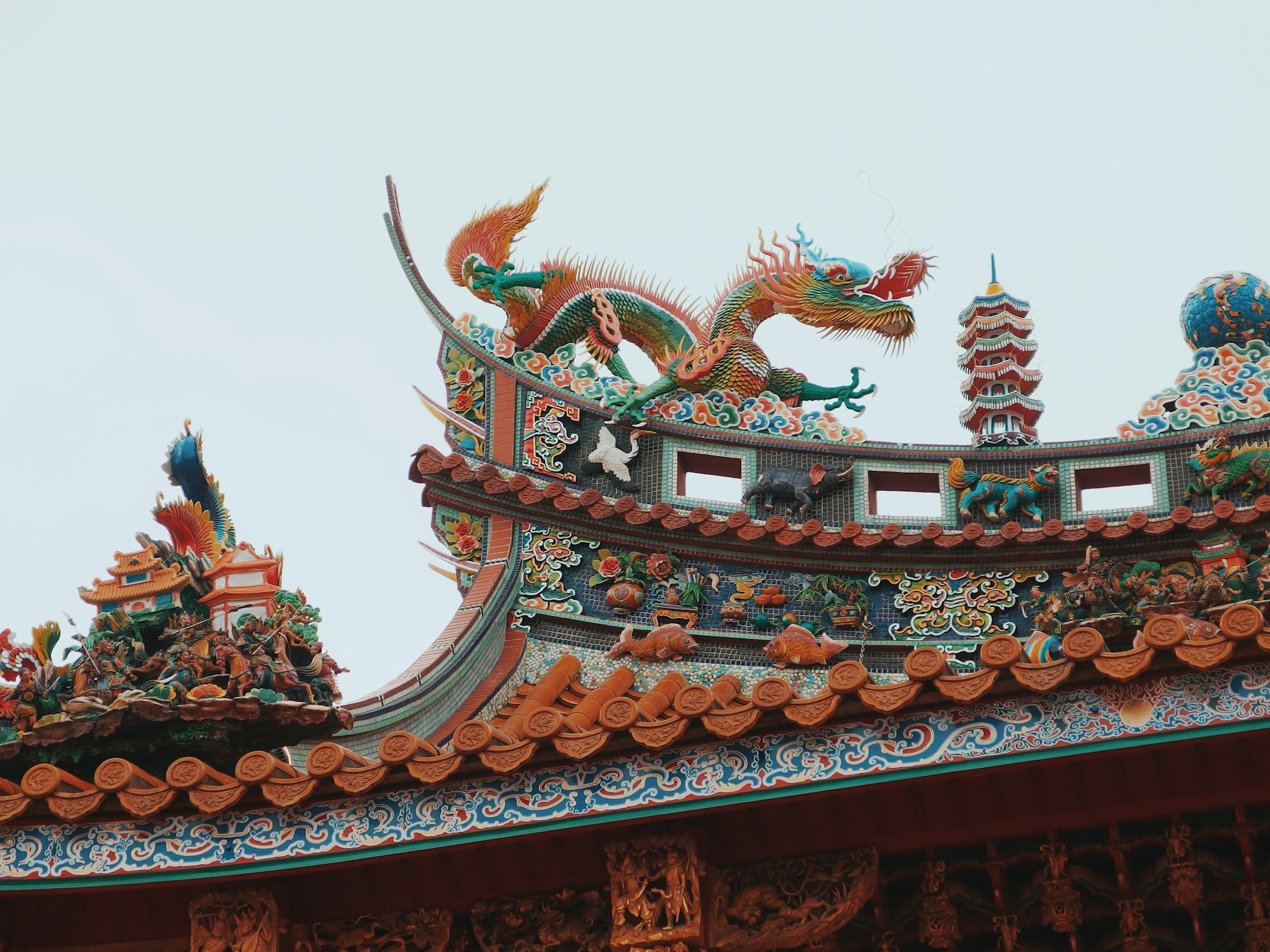
Since then, the situation has worsened.
A few years ago, Beijing resolved to wean its economy from its dependence on an overheated real estate market, a sector that had underpinned the savings of families as well as China’s banking sector and local government finances. Now, the property sector is in crisis. Developers collapsed, leaving behind huge debts, a trail of failed investments, unsold apartments and lost jobs. Chinese consumers, already prone to saving heavily, have become even more frugal. Businesses that endured the crippling impact of draconian Covid measures have cut salaries and scaled back hiring. Millions of college graduates joining the job market are facing long odds and poor prospects. And China’s population has shrunk two years in a row. In a country where the majority of people had only known the economy to grow rapidly and living conditions to improve, confidence is eroding. (Source: Why It’s So Hard for China to Fix Its Ailing Economy / New York Times)
So in September, Xi's administration rolled out an issue of special sovereign bonds worth about 2 trillion yuan ($283.02 billion) in a large economic stimulus package.
In September 2024, Chinese President Xi Jinping's administration unveiled a significant economic stimulus package, featuring the issuance of special sovereign bonds worth approximately 2 trillion yuan ($283.02 billion). This move represents one of China's most substantial fiscal interventions since the 2008 global financial crisis, aimed at revitalizing the country's flagging economy.The stimulus package includes several key components:

Consumption Boost: Funds from the special bonds will be used to:
Local Government Support: The package aims to alleviate the burden on local governments, which are currently struggling with a collective debt of around $13 trillion
Infrastructure and Public Works: Some economists, like Jia Kang, have suggested that the bond issuance could potentially be expanded to as much as 10 trillion yuan ($1.4 trillion) to fund necessary infrastructure and public works projects.

Property Market Stabilization: The stimulus includes measures to support the struggling real estate sector, such as lowering mortgage rates and reducing down payment requirements for second-home buyers.
Monetary Policy Adjustments: Alongside the fiscal stimulus, the People's Bank of China announced cuts to key interest rates and reduced the reserve requirement ratio for banks.
This comprehensive stimulus package reflects the Chinese government's growing concern over deflationary pressures, weak consumer confidence, and a significant downturn in the property market.
Even after the stimulus, people are questioning the effectiveness of the stimulus.

With such a situation inside and a Bangladesh coup on its borders that planted an American ally in Mohammad Yunus, China's geopolitical options are limited.
So are Russia's.
The war is a result of the moves orchestrated by the subsequent establishments of the Democratic Party and their allies/non-state actors.
George Soros had set up shop in Ukraine in 1990 itself. Even before the Soviet Union had broken.
I established the Renaissance Foundation in Ukraine in 1990 – before the country achieved independence. The foundation did not participate in the recent uprising, but it did serve as a defender of those targeted by official repression. The foundation is now ready to support Ukrainians’ strongly felt desire to establish resilient democratic institutions (above all, an independent and professional judiciary). (Source: GeorgeSoros.com)
Soros' influence and activities in Ukraine were brought out in 2016 via a massive 2500 leaked tranche of documents by the website called DCLeaks.
George Soros and the executives of his NGOs had meetings with many actors of the political subversive activities happening in Ukraine.
The US Ambassador Pyatt shares the need to have a PR campaign against Putin and Russia. A project that Soros agrees with.
The details of the discussions are in the document below.
Basically, the US Ambassador hands over the reins of the Ukrainian situation in George Soros' hands - "What should the US Government do?". Soros then gives directions on how the US should impose sanctions and work with the EU to ensure Putin recognizes the results of the Presidential elections. Elections, that were rigged for the most part.

That is why, when tired of the US machinations in Ukraine, Putin finally attacked Ukraine - as he explained - Soros was his usual belligerent self as he issues a dire warning of an impending World War that would "spell the end of civilization".

The follies and the grand objectives of the Democratic Party came out openly during the Trump Vs Harris debate.
In a heated exchange during the U.S. presidential debate, former President Trump and Vice President Kamala Harris faced the question of the ongoing Russia-Ukraine war. Trump wasted no time in framing the conflict in starkly different terms.
To him, this wasn’t a simple battle of democracy versus autocracy; it was a failure of diplomacy—a conflict that should never have escalated. He argued that his administration would have brokered peace early on, not with tanks or missiles, but with strategic negotiation and "strength through diplomacy."
Kamala Harris laid out the achievements of the current administration and discussed how US had provided (and will continue to provide) military aid—artillery, air defense systems, and Abrams tanks. “If Donald Trump were President,” she stated with a pointed look, “Putin would be sitting in Kyiv right now.”
This was more than rhetoric; it was a clash of visions.
One was the continuation of the plan for war in Ukraine that had its genesis in the break up of the USSR and the subsequent unipolar world led by the US.
The other was a plan for peace by Donald Trump - who wanted the war to end.
War is not something that will help any of the players. Yet it is happening.
To satisfy the hunger of the profiting Military Industrial Complex and their political puppets. Here are some excellent reasons why this cabal wants the war to continue.
Russian President Putin, on the other hand, made an interesting proposal during the Kazan BRICS summit earlier this month - Saudi Arabia will be a ‘comfortable’ venue for talks to resolve the Ukrainian conflict.
Saudi Arabia will be a ‘comfortable’ venue for talks to resolve the Ukrainian crisis, said Russian President Vladimir Putin on the sidelines of the BRICS summit on Saturday (October 19, 2024). In response to a question, President Putin acknowledged his close personal relation with the Saudi royal family and said the main hurdle on the way for the peace process is the attitude of Ukraine that has issued a decree against holding dialogue with Russia to end the conflict that started in February 2022. “We consider Saudi Arabia as a friendly country. I have very good relations with the King, and generally friendly personal relation and with the Crown Prince. And I know, I’m just sure that everything Saudi Arabia does in this area, it does sincerely, I have no doubts here. And therefore, if such events are organized in Saudi Arabia, of course, the venue itself is quite comfortable for us,” said President Putin. (Source: Saudi Arabia ‘comfortable’ venue for talks to end Ukraine war: Vladimir Putin / The Hindu)
Now if you go back to our earlier newsletter where we explored what Modi is doing to counter the American Deep State, you will realize that stopping the war is the biggest threat to those who destroy other countries at will.

So if you look closely, the geostrategic chess board is being laid out as we see.
And, during this critical time, the main player - the United States of America - has its military, its ammunition and an army of subversives trying to control different countries.
What it no longer has - is a leader.
There is no US President right now. And, if Harris wins (which seems unlikely by the day) there might not be one in the next four years.
This means, that on the geopolitical table, the US has no substantive representation.